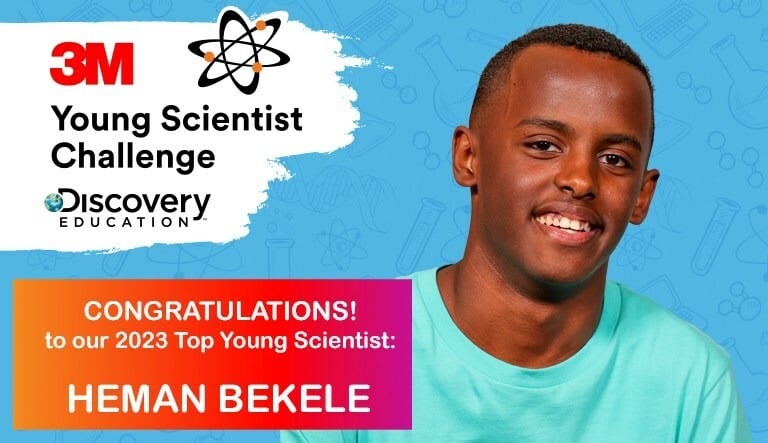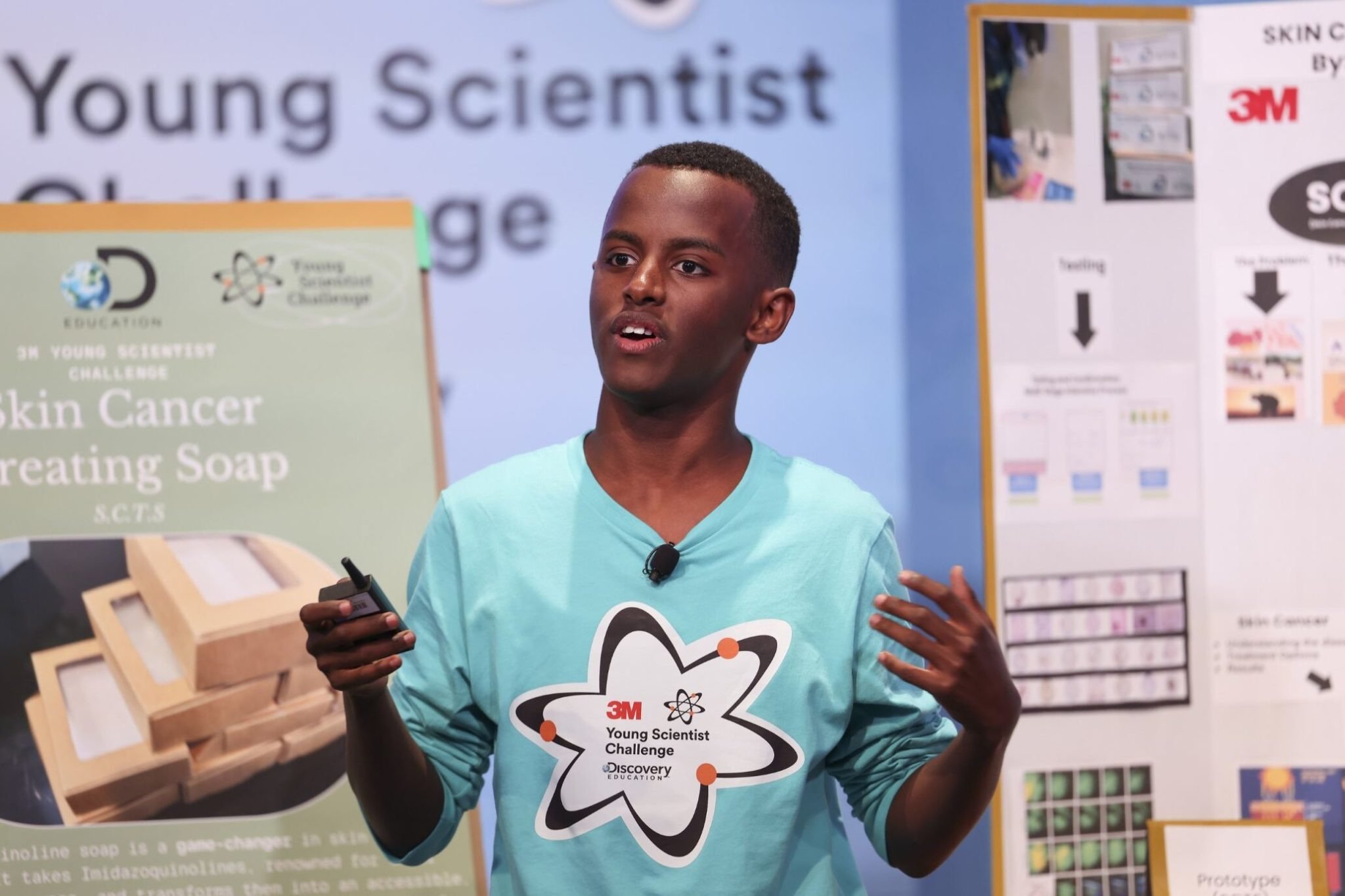
With about 100,000 new cases diagnosed annually, skin cancer is the most common type of cancer in the US. It is also expensive to treat. The CDC estimates that over $8 billion is spent annually to fight the disease. Now, scientists may have some help from 14-year-old Heman Bekele. The ninth-grader from Annandale, Virginia, has created a cheap bar of soap that could potentially help fight skin cancer. His invention won him the title of "America's Top Young Scientist" at the 3M Young Scientist Challenge on October 10, 2023.
The teenager moved from Ethiopia to the US at the age of four. He recalls seeing the locals constantly working under the hot Sun. Since most skin cancers result from too much exposure to the Sun's ultraviolet rays, Bekele wondered if he could find an affordable way to fight the disease. He came up with the idea of making soap because it can be easily made and used worldwide.
"People might not have the equipment or have the facilities to be able to treat this disease," Bekele told ABC News. "A bar of soap is just so simple, so affordable, so accessible in comparison to these modern new skin cancer treatments."

Bekele submitted his idea for the 3M challenge while in eighth grade. In June 2023, he was selected as the top-ten finalist and paired with 3M scientist Deborah Isabelle. It took the pair four months to create "Skin Cancer Treating Soap" (SCTS). The bar contains chemicals that restore the body's dendritic cells, which get destroyed by cancer cells. Dendritic cells are the immune system's first line of defense against cancer and infections. SCTS, which costs just 50 cents a bar, still has to undergo clinical trials. The process could take between five to ten years. But if effective, it could help millions of people worldwide.
"I have always been interested in biology and technology, and this challenge gave me the perfect platform to showcase my ideas," Bekele said.
Shripriya Kalbhavi, a ninth grader from San Jose, California, won the second prize for her invention "EasyBZ." This sticker-like patch can be used to administer medicine without pills or needles. In third place was Sarah Wang from Andover, Massachusetts. The seventh grader created a glove that can detect epileptic seizures with common hand movements.

Now in its 16th year, the 3M Young Scientist Challenge invites students in grades 5 through 8 to find a unique solution to an everyday problem. In addition to the prestigious title of "America's Top Young Scientist," the grand prize winner receives $25,000 in prize money. The second and third-place winners each take home $2,000.
Resources: news.3m.com, abcrews.go.com, NPR.org
